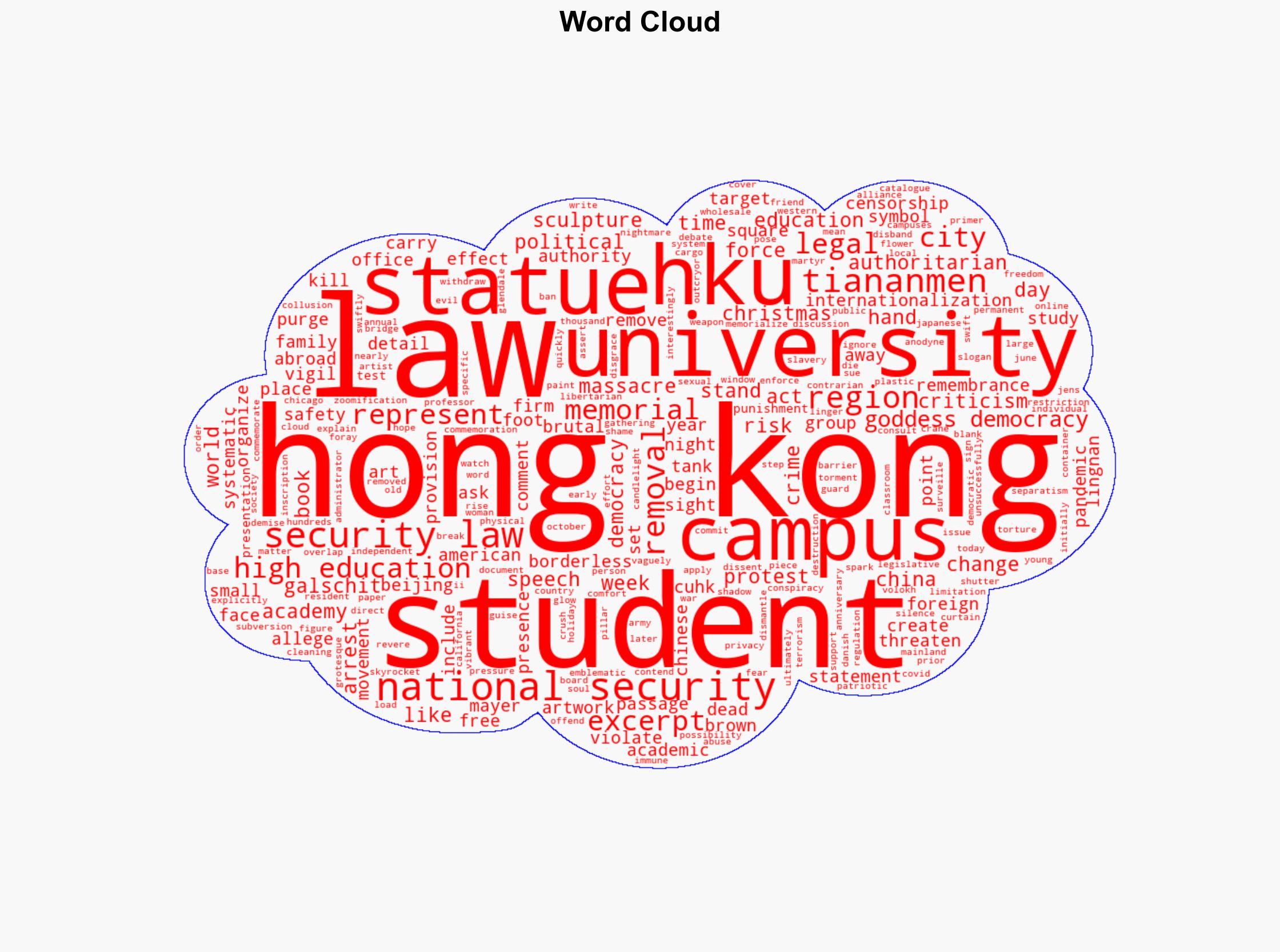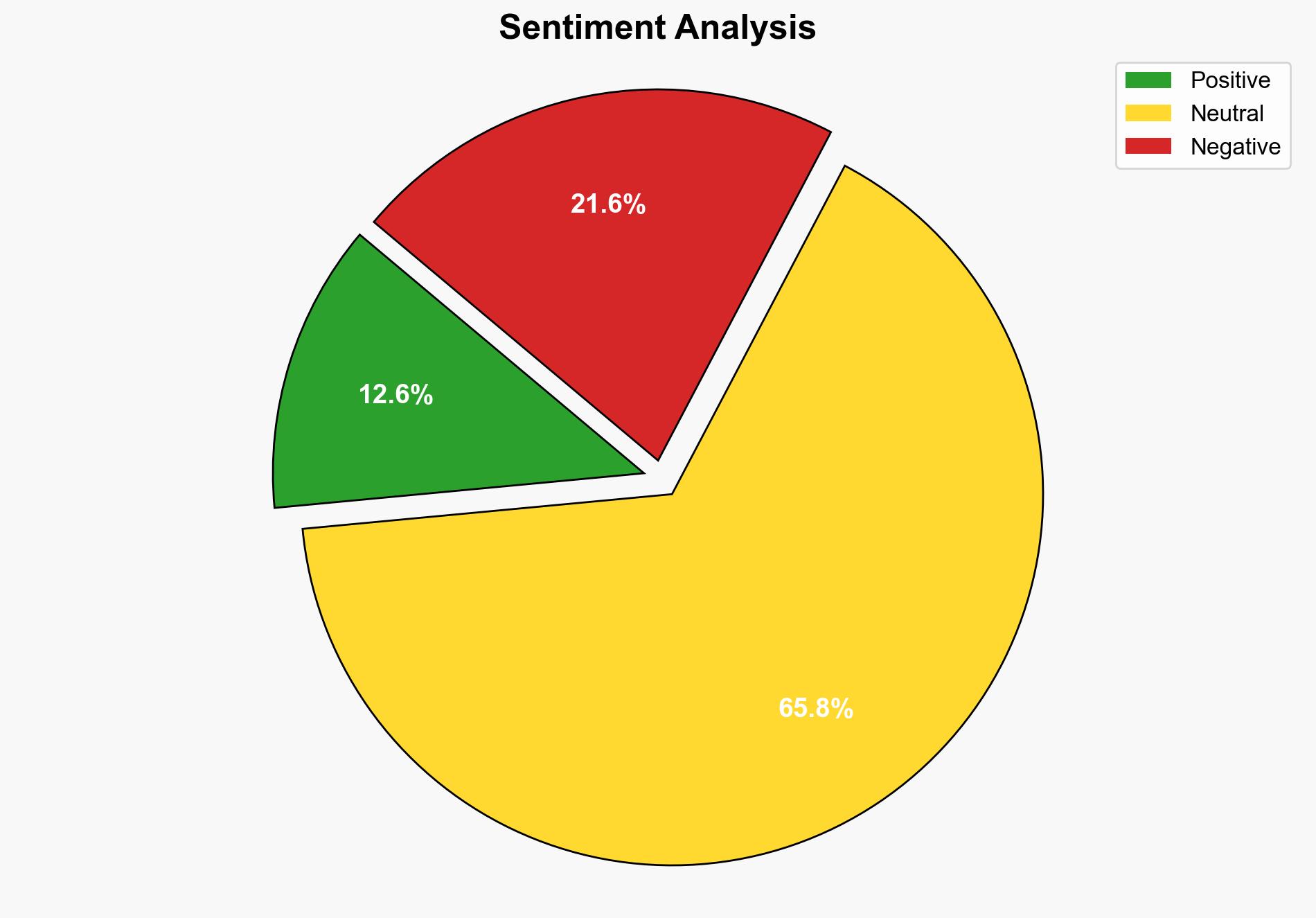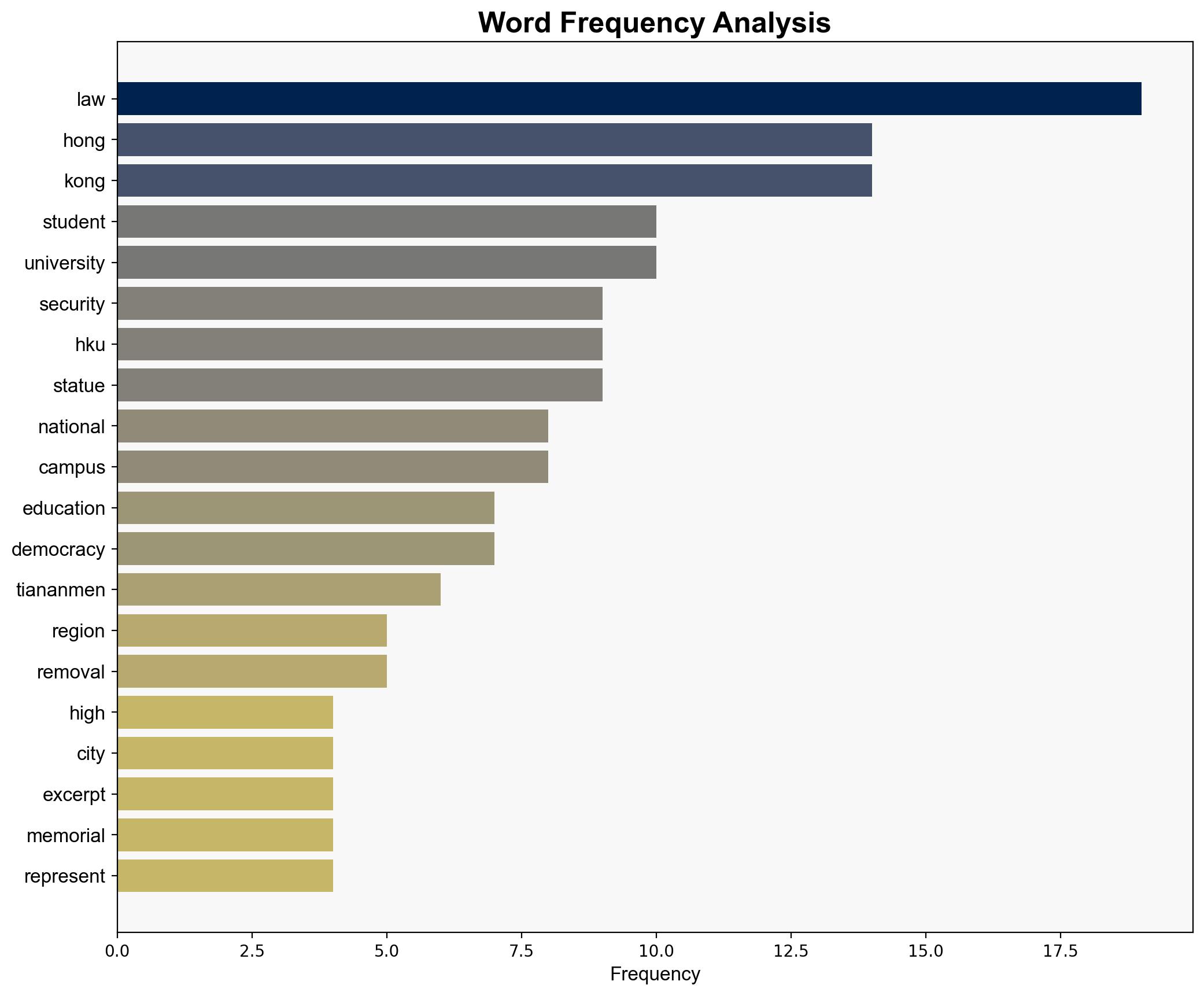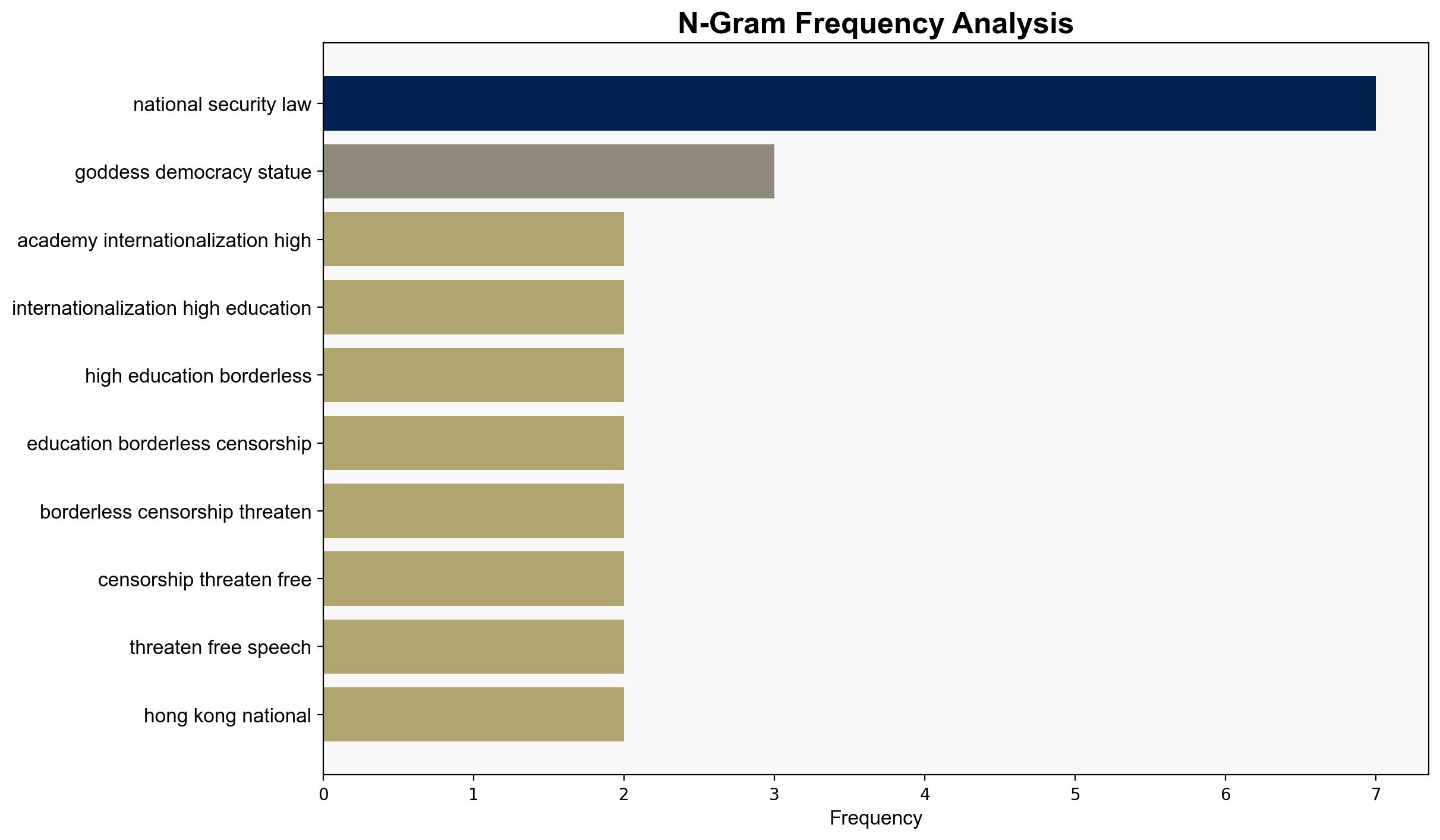Sarah McLaughlin Authoritarians in the Academy The National Security Law and the Shuttering of Academic Freedom in Hong Kong – Reason
Published on: 2025-09-11
Intelligence Report: Sarah McLaughlin Authoritarians in the Academy The National Security Law and the Shuttering of Academic Freedom in Hong Kong – Reason
1. BLUF (Bottom Line Up Front)
The passage of the National Security Law in Hong Kong has led to significant curtailments of academic freedom, with implications for international academic collaboration and regional stability. The hypothesis that the law is primarily a tool for political suppression is better supported. Confidence Level: High. Recommended action includes monitoring academic environments for further restrictions and supporting international academic networks to counteract the chilling effects.
2. Competing Hypotheses
1. **Hypothesis A**: The National Security Law is primarily a tool for political suppression, aimed at silencing dissent and consolidating control over Hong Kong’s academic institutions.
2. **Hypothesis B**: The National Security Law is primarily intended to protect national security and prevent foreign interference, with academic restrictions being an unintended consequence.
Using ACH 2.0, Hypothesis A is more strongly supported by the systematic removal of memorials and the targeting of academic discourse, which aligns with patterns of political suppression rather than mere security concerns.
3. Key Assumptions and Red Flags
– **Assumptions**: Hypothesis A assumes that the Chinese government prioritizes political control over educational freedom. Hypothesis B assumes a genuine security threat necessitating such measures.
– **Red Flags**: The vague wording of the law and its extraterritorial application suggest potential overreach. The rapid removal of memorials and the involvement of international law firms indicate external pressures.
– **Blind Spots**: Lack of direct evidence of foreign interference justifying such stringent measures.
4. Implications and Strategic Risks
The suppression of academic freedom could lead to a brain drain, weakening Hong Kong’s position as an international academic hub. This may escalate tensions with Western countries and affect international collaborations. The law’s chilling effect on free speech could extend beyond academia, impacting broader societal freedoms.
5. Recommendations and Outlook
- Encourage international academic institutions to establish partnerships that protect academic freedom.
- Monitor developments for signs of increased repression or potential backlash.
- Scenario Projections:
- **Best Case**: International pressure leads to a relaxation of the law’s application in academic contexts.
- **Worst Case**: Further crackdowns result in significant academic and economic isolation for Hong Kong.
- **Most Likely**: Continued restrictions with sporadic international condemnation and limited practical impact.
6. Key Individuals and Entities
– Jens Galschiøt, artist of the “Pillar of Shame” sculpture.
– Mayer Brown, law firm initially involved in legal representation related to the sculpture’s removal.
7. Thematic Tags
national security threats, academic freedom, geopolitical tensions, regional focus




